
Dr. Sangh Mittra

47 books

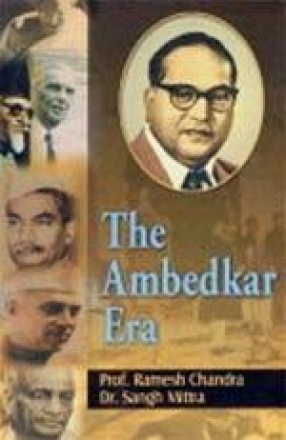

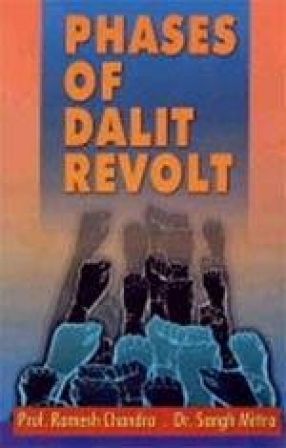


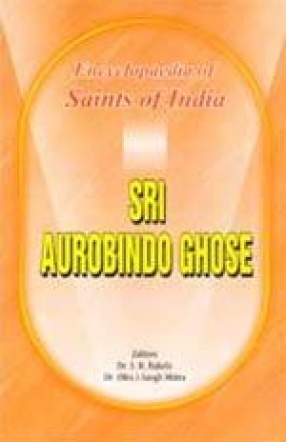
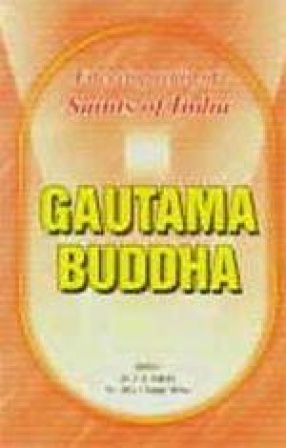




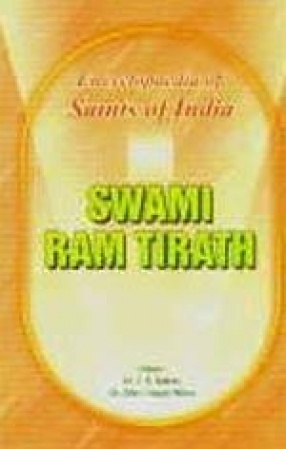







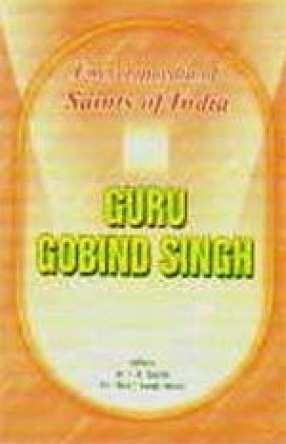

Born in a small village in Northern Kerala, Ramdas was greatly influenced by the religious bhajans of his father. From his early years, he began to devote his time towards prayer and chanting of his father’s mantra i.e. Shri Ram Jai Ram Jai Jai Ram. With the belief that Ram was the only reality, he began to lead a very simple life of an ascetic. He toured in India, South East Asia and America. He opined, ‘he is our constant companion. We can talk to him. That ...
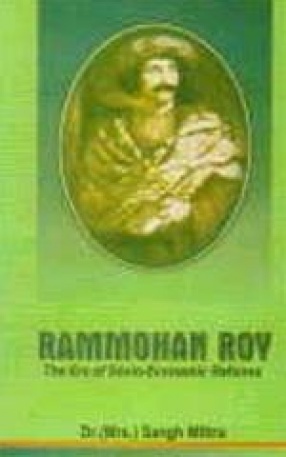
During the Viceroyalty of William Bentinck, there was much excitement and benevolent efforts towards social reforms. The true reformer, Raja Rammohan Roy, came forward to eradicate social evils in our society. The practices of Sati, infanticide, widow-remarriage, propagation of education etc. were seriously taken up by him. Undoubtedly the theme is well-knit giving necessary details of social problems and the efforts for their solution. One could say with ...

The theme has deep bearing on long and chequered career of the great Harijan or Dalit leader, commonly known as Baba Saheb Dr. B.R. Ambedkar. From his early days he began to realise that the Harijan’s social status is ‘very poor’ in the Indian society. In fact he was the victim at several fora. But he waited till he received the highest academic status in U.K. and U.S.A. Having equipped himself well academically, he began to think actively for the ...

The theme containing ten chapters along with a glossary and bibliography deal with the poetic talents and working of mind of the great poet, Sant Surdas who clearly identified his ideology with the problems and life style of common man. His truth and sincerity in his work as well as his clarity in thought had endeared him among the galaxy of poets of his age. Above all, his language and ideas were simple to be easily understood by one and all. He gave vent to his ...

Based on 21 chapters, a comprehensive bibliography and index, the theme depicts a complete picture of the phases of Dalit revolt. The element of awakening was generated by prominent leaders and the continued process of awakening became a glaring phenomenon. This work indeed will be useful for teachers, scholars and students in India and abroad.

Vinoba Bhave’s contribution in political and socio-economic struggle for the attainment of swaraj was a significant phenomenon in the annals of our sub-continent. A true Gandhian as he was he appeared to be a saint from his dress which indeed was very simple. His sincere identification with the causes of the rural people made him quite popular. His Bhoodan and Gramdan movements brought about significant and historic results. The book has deep bearing on swaraj, ...

The parts of the child’s development which are formally planned came to seem important to those who plan and administer the schools, while the parts which are left to informal contacts are overlooked as of small importance, or are forgotten. Yet they continue to be very important, perhaps more important than all the matter included in formal education. Rural education, like all education, should not limit itself to the processes of the schoolroom, but at every ...

The theme of this work has deep bearing on the political and philosophical ideology of a learned saint, Sri Aurobindo, who in his early years, was deeply interested in raising the banner of revolt against the colonial rule. Having deep connections with the revolutionary movement, he performed his innings in an appreciable way. But ultimately, he landed into Pondicherry where he founded the Ashram which gained international fame. This work deals with his life as a ...

The theme deals with the religious philosophy of Gautama Buddha who renounced the royal robes and power, became a monk and ultimately founded Buddhism which spread in several regions of India and the neighbouring countries. Buddha travelled widely and his philosophy greatly attracted people who became his ardent disciples. As a result several viharas were inaugurated where the main emphasis was on the life of piety and social service. The chapters thus deal with ...

Ramanuja’s role as a great religious teacher is unique in the annals of our sub-continent. His matha established at Srirangapatnam, was financed by several kings and affluent people. Soon he could attract thousands of his followers in the south as well as in the north of India. His ideology and philosophy were a challenge to the teachings of Adi Sankaracharya. The theme has been divided into nine chapters along with comprehensive appendices. They depict his ...

Saint Kabir is counted among the few well-known poets of his age. His poetry is simple, lucid in style and devoid of any kind of complexity. It is indeed for the common man and his welfare. His verses are studied with much interest by teachers and students. His writings are prescribed even at the university stage. The text contains nine chapters which include his simple way of living, the social condition of his age, his religious views which he lucidly depicted ...

Swami Dayananda played a most significant role in the foundation of the Arya Samaj during the nineteenth century. The theme contains seventeen chapters having deep linkage with the socio-religious philosophy of Swamiji who was eminently dedicated to the vedic culture. His teachings indeed greatly influenced the people, mostly of the Northern region and Lahore became the biggest centre of Arya Samaj. The chapters deal with his concept of nationalism, the ...

The theme weaved into seven chapters deal with the philosophic approach to life by Kalidasa, a renowned author and poet. In fact he devoted his whole life for scholarly pursuits which had deep bearing on societal problems. He also suggested their solutions. The concept of love and beauty in his plays and poetry are marvellous in contents. Indeed he is very clear about the ideology he preached through his writings. The compilation of several facts on Kalidasa ...

Swami Ram Tirath renounced his domestic life to seek truth. His concept of Vedanta is fairly comprehensive and all pervading. He was very much fascinated by the syllable Om. According to him Om has a charm and majesty of its own. In Rama’s concept of nationalism, there is love and love alone. He also discussed the poverty of the Indian masses. He opined that poverty is the mother of all social, political and moral ills. The theme has eleven chapters and ...

The theme in this work clearly lays emphasis on the socio-religious philosophy of Lord Mahavira, the founder of Jainism. The nineteen chapters dealing with his writings, preaching and principles are significant as they lay emphasis on fundamental principles of Jainism, teachings of Lord Mahavira, the great scriptures of Jains, right attitudes in life, views for a disciple, ways and means of inner development, purity of thought and life, five types of knowledge, ...

Swami Vivekananda is considered one of the prominent saints of our sub-continent. He preached social service, disciplined life and dedication to humanity which had deep bearing on all aspects of national renaissance. His oratory and arguments regarding God and religion greatly impressed the people of USA and England. A towering intellectual as he was, his disciple Ramakrishna Parmahamsa brought forward his ideology during his time. Indeed these chapters deal ...

The name of Mirabai is well-known in the annals of our history. Married in an orthodox family, she became a widow at a young age. From her younger days, her devotion to Lord Krishna was proverbial. His devotional poems and her message of Bhakti deserve much appreciation from her devotees. Brindaban-Leela is respectfully attached to her name. The theme contains ten chapters which deal with her religious and devoted career. These are her early career, the divine ...

The theme of this work has deep bearing on the religious philosophy of Saint Tulsidas whose emergence on the social scene of our sub-continent brought about a change which benefited Hinduism and other religions. The authorship of the Ramayana is his greatest academic contribution which has made several generations to show spontaneous love and respect for him. Besides he showed us the principle of moksha, three paths of salvation, descent of God and several other ...

Radha Soami Mat is a school for spiritual enlightenment and realization of reality. Like Guru Nanak Dev, Kabir, Tulsi Sahib and other saints, Soamiji is also a true and perfect saint. Soamiji lays much emphasis on satsang, satguru and Name, Nam or Shabad. Guru is God Himself in the human form and we should search for a true and perfect Guru. We should sacrifice our body and develop extreme love and devotion for our Guru. Then the form of our Guru will stay in our ...

The early career of Valmik depicts him as an ordinary person performing an unsocial job which involved him in highway robbery. The illustrious sapta rishi brought about an unexpected change in his career and after years of tapsya, he became Valmik Rishi. He authored the Ramayana and thus gained the most illustrious fame in the annals of our history, nay, the Hindu society. The theme contains seven chapters which depict, in a comprehensive way, the poet’s deep ...

Ramakrishna Parmahamsa's career was unique in the socio-religious history of our sub-continent. His life passed through several experiments having deep bearing on his search for truth and knowledge. At last he succeeded in his mission which showed its worth at national and international level. Devotees—men as well as women—thronged to listen to him with highest degree of discipline. The theme contains fifteen chapters and two appendices which deal with the ...

Hazrat Nizam-ud-din Auliya and Hazrat Khwaja Muinuddin Chishti represented a unique generation of saints who are ever loved and respected by millions of their devotees in India and abroad. They were scholars, opposed slavery, showed much love and respect for women and children, propagated quest for reality and truth, realism as a school of thought, concern for ailing people and a truthful model of conduct. The text contains two parts. Whereas the former deals ...

Chaitanya’s appearance greatly enlightened all classes of people who were totally disillusioned at that time. The cult of Bhakti as depicted by Chaitanya became the perfect answer to the question of revival of Hinduism. He used to draw large crowds by his pleasing personality and everybody became moved and pleased by his divine grace—and attractive feature of Bhakti—dharma. The theme has been divided into ten chapters which have deep bearing on his early ...

Guru Gobind Singh was the last Guru of the Sikhs who always preached piety, simple life, dedication to noble causes, truth and fearlessness. The great sacrifice of Guru Teg Bahadur generated the spirit of sacrifice in his mind and heart. He led a disciplined life and opposed violence and injustice along with the cooperation and support of his dedicated workers. The founder of the ‘Khalsa’ brought about the sense of confidence and bravery among the Sikhs. The ...
